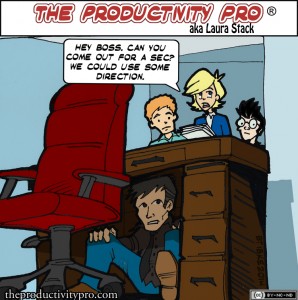
Three weeks ago, I was working with 25 sales leaders of a large financial services corporation. We were discussing workflow and how to create an effective task management system. Seeing that they were all furiously taking notes, I told them they could instead download a free eBook I’d put together with screenshots and step-by-step instructions on how to use Microsoft Outlook Tasks correctly (text the word PRODUCTIVITY to 41411). They excitedly pulled out their phones and followed the instructions. So far so good. About two minutes later, a man furrows his brows in confusion, looks over at his neighbor’s cell phone, and starts whispering to her. At the break, I wander over to see what the problem is. He shows me his cell phone. He successfully opted in and confirmed the autoresponder. … [Read more...]











